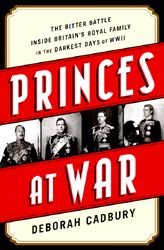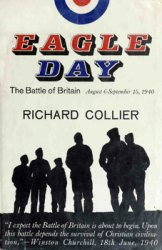The American Philosophical Society was founded in 1743, modeled on the Royal Society in London as an intercolonial organization for the exchange of “useful knowledge.” Like so many of the organizations that Benjamin Franklin created, the society was intended to draw men into correspondence and conversations that would prove beneficial both to their own lives and to the community as a whole.
John Bartram, a Quaker farmer and botanist, outlined the first plan for the organization in 1739. Writing to London merchant and natural philosopher Peter Collinson, Bartram envisioned a club where the “most ingenious & Curious men” could study “natural secrets arts & sciences.” He thought the group could secure a meeting house, sponsor lectures, and promote other avenues of inquiry.
Bartram, a brilliant student of natural science, had little background or ability in organizing public plans. His friend Benjamin Franklin, however, had both that ability as well as a growing interest in expanding the intellectual lives of his fellow colonists, having already created the Junto, a social and study club for Philadelphia artisans, and the Library Company of Philadelphia in 1731. In 1743 Franklin published the plan for the American Philosophical Society that he and Bartram had worked out in “A Proposal for Promoting Useful Knowledge among the British Plantations in America.” With colonies now established, Franklin wrote, “there are many in every Province in Circumstances that set them at Ease, and afford Leisure to cultivate the finer Arts, and improve the common Stock of Knowledge.”
From 1743 to 1746 the society welcomed members, including Franklin, Bartram, physician Thomas Bond; fellow Junto members Thomas Goderey, William Coleman, and William Parsons; and colonial notables such as Cadwallader Colden, Robert Hunter Morris, and James Delancey. Despite an impressive membership list, however, interest in the organization soon faltered. Franklin described the members as “very idle Gentlemen” in 1745, and plans for regular meetings or a publication came to nothing. By 1746 the organization was no longer meeting.
The American Philosophical Society was revived in the 1760s, shortly after the American Society for Promoting and Propagating Useful Knowledge was founded in 1766. On January 2, 1769, the two organizations merged to become the American Philosophical Society, held at Philadelphia, for Promoting Useful Knowledge.
Further reading: Whitfield J. Bell, Jr., Patriot Improvers: Biographical Sketches of Members of the American Philosophical Society, vols. 1 & 2 (Philadelphia: American Philosophical Society, 1999).
—George W. Boudreau
Andros, Sir Edmund (1637-1714) soldier, government official
Edmund Andros was born in London into a family of ardent royalists and professional soldiers long resident in the Channel Island of Guernsey. Andros began his own military training in Dutch service and then, after the 1660 restoration of the Stuart monarchy, in the Grenadier Guards and as a major in an English regiment stationed in the Caribbean. In 1674 the patronage of James, Duke of York, secured him the governorship of the duke’s province of New York, recently conquered from the Dutch. Andros proved a capable although autocratic executive in establishing English forms of government and forging an enduring alliance, the famous Covenant Chain, with the Iroquois Indians. Recalled to London in 1681 to answer charges of misconduct pressed by a faction of New York’s merchants, he was replaced as governor in 1683 but then commissioned royal governor of the newly formed Dominion oe New England in 1686 with a lavish annual salary of ?1,200.
In Boston Andros lost no time in implementing his instructions to curb illegal trade, favor the Anglican Church, and govern without a representative assembly, all measures that flew in the face of the colonists’ cherished liberties. Dissent grew, heightened by war with the eastern Indians and Andros’s determination to rule through a clique of officials brought from England and New York. On April 16, 1689, as news of England’s Glorious Revolution reached Boston, a popular uprising overthrew the Dominion government and held Andros and his subordinates prisoners until they could be returned to England. There, charges of misrule were again dismissed, and Andros was sent back to North America in 1692 as royal governor of Virginia.
Andros initially worked effectively with Virginia’s assembly to reorganize its government and defend its frontiers. By 1696, however, powerful local interests led by James Blair, the Bishop of London’s commissary in the colony, began campaigning in London for his removal. In declining health, Andros returned to England and in 1698 surrendered his post. Since 1674 he had held absentee office as bailiff of Guernsey, and he now served briefly as its lieutenant governor. Thrice married, Andros died childless in London in 1714.
Edmund Andros has passed into American history as a legendary tool of Stuart tyranny, with the Boston revolt




 World History
World History









